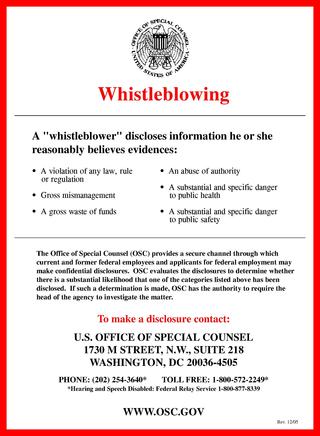A contractor is a person or company that performs work on a contract basis. The term may refer to:
A contractor is a person or company that performs work on a contract basis. The term may refer to:

In economics, a public good is a good that is both non-excludable and non-rivalrous. Use by one person neither prevents access by other people, nor does it reduce availability to others. Therefore, the good can be used simultaneously by more than one person. This is in contrast to a common good, such as wild fish stocks in the ocean, which is non-excludable but rivalrous to a certain degree. If too many fish were harvested, the stocks would deplete, limiting the access of fish for others. A public good must be valuable to more than one user, otherwise, its simultaneous availability to more than one person would be economically irrelevant.
Independent or Independents may refer to:

A private military company (PMC) or private military and security company (PMSC) is a private company providing armed combat or security services for financial gain. PMCs refer to their personnel as "security contractors" or "private military contractors".

A war profiteer is any person or organization that derives unreasonable profit from warfare or by selling weapons and other goods to parties at war. The term typically carries strong negative connotations. General profiteering, making a profit criticized as excessive or unreasonable, also occurs in peacetime. An example of war profiteers were the "shoddy" millionaires who allegedly sold recycled wool and cardboard shoes to soldiers during the American Civil War. Some have argued that major modern defense conglomerates like Lockheed Martin, Mitsubishi, Boeing, BAE Systems, General Dynamics, and RTX Corporation fit the description in the post-9/11 era. This argument is based in the political influence of the defense industry, for example in 2010 the defense industry spent $144 million on lobbying and donated over $22.6 million to congressional candidates, as well as large profits for defense company shareholders in the post-9/11 period.
Employment is a relationship between two parties regulating the provision of paid labour services. Usually based on a contract, one party, the employer, which might be a corporation, a not-for-profit organization, a co-operative, or any other entity, pays the other, the employee, in return for carrying out assigned work. Employees work in return for wages, which can be paid on the basis of an hourly rate, by piecework or an annual salary, depending on the type of work an employee does, the prevailing conditions of the sector and the bargaining power between the parties. Employees in some sectors may receive gratuities, bonus payments or stock options. In some types of employment, employees may receive benefits in addition to payment. Benefits may include health insurance, housing, and disability insurance. Employment is typically governed by employment laws, organisation or legal contracts.

The public sector, also called the state sector, is the part of the economy composed of both public services and public enterprises. Public sectors include the public goods and governmental services such as the military, law enforcement, infrastructure, public transit, public education, along with health care and those working for the government itself, such as elected officials. The public sector might provide services that a non-payer cannot be excluded from, services which benefit all of society rather than just the individual who uses the service. Public enterprises, or state-owned enterprises, are self-financing commercial enterprises that are under public ownership which provide various private goods and services for sale and usually operate on a commercial basis.

A taxpayer is a person or organization subject to pay a tax. Modern taxpayers may have an identification number, a reference number issued by a government to citizens or firms.
A subcontractor is a person or business which undertakes to perform part or all of the obligations of another's contract, and a subcontract is a contract which assigns part of an existing contract to a subcontractor.
An independent contractor is a person, business, or corporation that provides goods or services under a written contract or a verbal agreement. Unlike employees, independent contractors do not work regularly for an employer but work as required, when they may be subject to law of agency. Independent contractors are usually paid on a freelance basis. Contractors often work through a limited company or franchise, which they themselves own, or may work through an umbrella company.
In finance, a surety, surety bond, or guaranty involves a promise by one party to assume responsibility for the debt obligation of a borrower if that borrower defaults. Usually, a surety bond or surety is a promise by a surety or guarantor to pay one party a certain amount if a second party fails to meet some obligation, such as fulfilling the terms of a contract. The surety bond protects the obligee against losses resulting from the principal's failure to meet the obligation. The person or company providing the promise is also known as a "surety" or as a "guarantor".
There is no agreed definition of value networks. A general definition that subsumes the other definitions is that a value network is a network of roles linked by interactions in which economic entities engage in both tangible and intangible exchanges to achieve economic or social good. This is close to the definition of Verna Allee, see below. Here are a few definitions that provide different perspectives on the general concept of a value network.
In United States constitutional law, state action is an action by a person who is acting on behalf of a governmental body, and is therefore subject to limitations imposed on government by the United States Constitution, including the First, Fifth, and Fourteenth Amendments, which prohibit the federal and state governments from violating certain rights and freedoms.
Service may refer to:
The Federal Acquisition Regulation (FAR) is the principal set of rules regarding Government procurement in the United States, and is codified at Chapter 1 of Title 48 of the Code of Federal Regulations, 48 CFR 1. It covers many of the contracts issued by the US military and NASA, as well as US civilian federal agencies.
In the United States, the processes of government procurement enable federal, state and local government bodies in the country to acquire goods, services, and interests in real property. Contracting with the federal government or with state and local public bodies enables interested businesses to become suppliers in these markets.
A private defense agency (PDA) is a theoretical enterprise which would provide personal protection and military defense services to individuals who would pay for its services. PDAs are advocated in anarcho-capitalism as a way of enforcing the system of private property.

The Canadian Commercial Corporation is a Canadian federal Crown corporation mandated to support the growth of international trade by helping Canadian exporters gain access to foreign government procurement markets and by helping government buyers abroad to obtain goods from Canada. The ability to enter into commercial contracts as a Government of Canada entity through CCC is designed to give Canadian exporters the opportunity to mitigate risks associated with foreign procurement and international contracting. Canadian businesses exported $2.92 billion in products and services through CCC contracts during the CCC’s 2020-2021 fiscal year.

A whistleblower is a person who exposes any kind of information or activity that is deemed illegal, unethical, or not correct within an organization that is either private or public. The Whistleblower Protection Act was made into federal law in the United States in 1989.
The term Hollow State is used to describe a set of governmental practices in which states contract with third parties in order to distribute government services. In a hollow state there are many degrees of separation between the source of taxpayer funds and the final distribution of taxpayer-funded products or services. Services paid for by the state are produced by a vast network of providers and the task of the government is not to manage provision, but to negotiate contracts with providers. There is no "command and control" relationship between government and contractors. Contracts are managed by countless agencies and even more providers, there is no means of central record keeping or data management. A Hollow State has all the standard edifices of governance although most are under the influence of third-party organizations, either for-profit or non-profit entities.